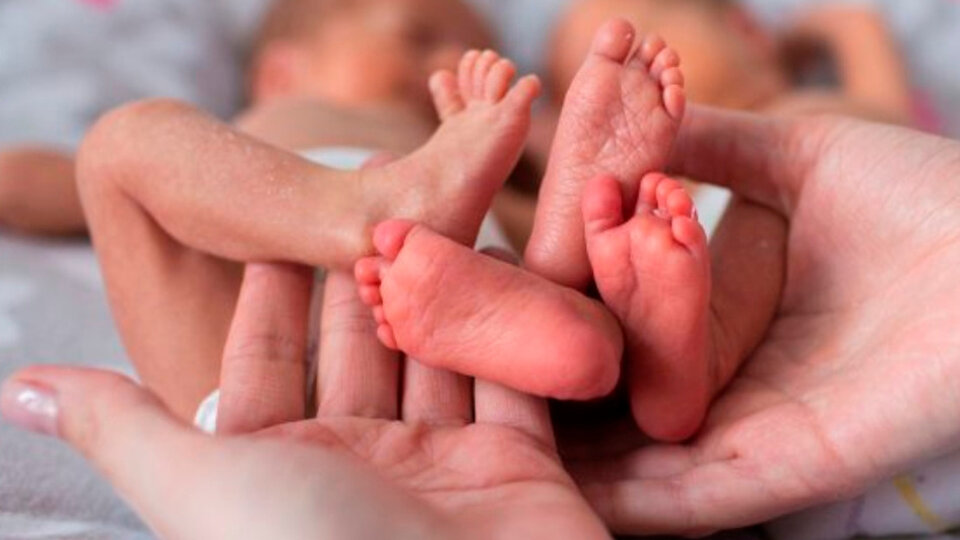
[ad_1]
A group of scientists from the National University of Colombia discovered a case of a pair of twins who have different parents. A man had requested a study to determine the paternity of the children.
The case began in August 2018 when the Genetics and Population Identification Group of the National University of Colombia (UNAL) received a request to establish the paternity of two male twins. The man requested the genetic tests because he had doubts about his relationship with the babies.
According to a statement from the National University news agency, after matching the DNA of the alleged father of a pair of twins, the Genetics Group reported that the result “showed that it coincided with the genetic profile of only one of them, that is to say that for the other it was an exclusion of paternity”.
Scientists explained that it is a case of heteropaternal overfertilization, a rare phenomenon that occurs when a second egg, released during the same menstrual cycle, is fertilized by sperm from a different man.
As explained by the Doctor of Science-Biology of the National University, Lilián Andrea Casas Vargas, in this case a marker known as “Y chromosome panel” – taking into account that children are boys – to obtain more precise results.
“The Y chromosome is only secreted from the paternal line, and it does so en bloc from generation to generation, it never changes,” Casas said. “So by not changing, these Y chromosome markers are expected to be completely identical to the father“.
“In this case, the genetic profile coinciding with one of the twins is again observed, while with the other 14 non-coincidences out of 17 were identified, which corroborated the exclusion”, added the scientist.
Casas pointed out that according to the protocols established in the laboratory, when a case of paternity arrives and it results in an “exclusion”, the whole process is repeated to confirm that there were no errors. techniques during the analysis.
In this way, they again summoned the people involved from whom other samples were taken and the results were the same, for which the case was confirmed, the report of which was published in the Biomedical Journal of the Institute. national health of the state.
William Usaquén, Group Director, indicated that In Colombia, nearly 11,000 paternity tests are carried out per year. “Although it is a straightforward procedure, this (the test) has a very high emotional charge due to the type of social and cultural implications it has. Opinions of parentage reveal a series of prejudices still latent in Colombian society. on issues like motherhood or sexuality, for example, ”he said.
.
[ad_2]
Source link
 Naaju Breaking News, Live Updates, Latest Headlines, Viral News, Top Stories, Trending Topics, Videos
Naaju Breaking News, Live Updates, Latest Headlines, Viral News, Top Stories, Trending Topics, Videos